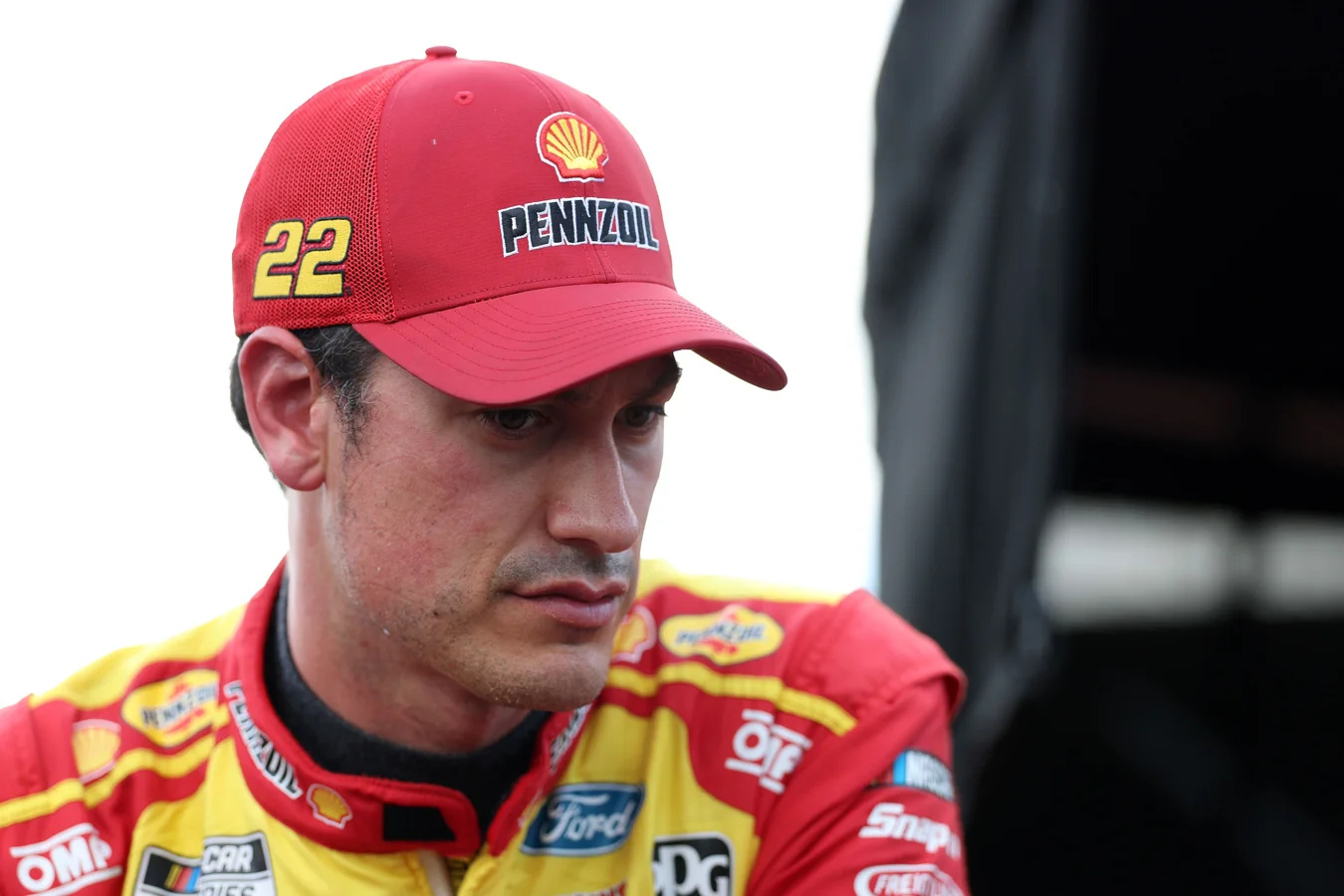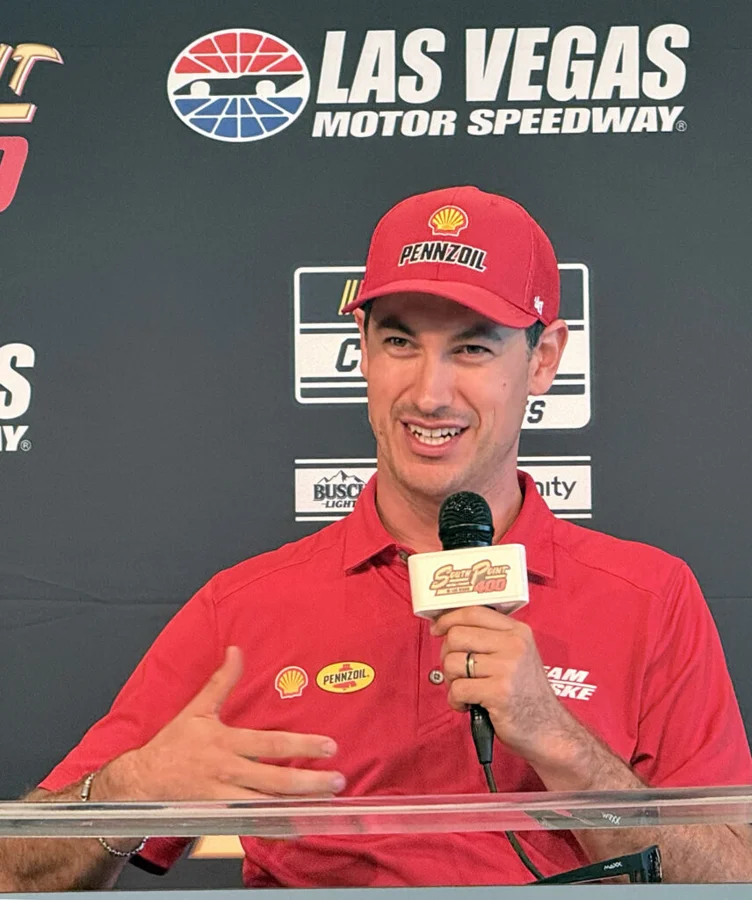Joey Logano, a prominent driver in the NASCAR Cup Series, has called for greater clarity on race manipulation rules after a dramatic race at the Roval. With increasing debate around how much teams can inform drivers about points situations during races, Logano’s perspective on communication and race management has reignited discussion about what constitutes manipulation, bringing the issue to the forefront of NASCAR regulation. This debate over Joey Logano on race manipulation comes at a time when the sport faces mounting pressure to refine its rules and avoid gray areas affecting the integrity of competition.
Controversy Arises After Roval Race: Perspectives Fuel the Conversation
The recent race at the Roval circuit in the NASCAR Cup Series brought intense moments and revealed divisions on race-day communication. JGR veteran Denny Hamlin openly admitted he would have let Ross Chastain pass if it meant preventing Joey Logano’s advancement, thrusting “race manipulation” into the spotlight. Meanwhile, NASCAR’s restrictions on how much teams can communicate points information to their drivers have generated confusion among competitors, teams, and observers alike.
Currently, teams are prohibited from providing points updates to drivers unless the driver is out of the cutoff line—a rule intended to limit in-race strategizing that could be viewed as manipulating race outcomes. However, opinions differ on where to draw the line between helpful information and unfair manipulation. Joey Logano expressed that mere information sharing, such as points summaries, should not be conflated with outright orchestrating race results.

It’s a slippery slope either way because where is the line? Is just telling somebody where you are in points and what’s going on around you, is that too far? Saying straight-up what to do is probably too far. We can kind of understand that, but just saying what the point situation is, I don’t think that’s too far, in my opinion.
Joey Logano said via Cup Scene.
Logano’s comments underline the complex distinction NASCAR faces: while outright tactical orchestration is widely condemned, relaying situational information remains a contentious but potentially harmless practice, according to drivers like Logano.
Logano Argues for Driver Autonomy and Clearer Boundaries
The three-time Cup Series champion emphasized that drivers should have autonomy in making their on-track decisions. He believes that providing points updates to drivers is not a form of race manipulation, but rather a necessary component of race strategy. In his view, knowledge equips drivers to act in their best interest, particularly when chasing a win or strategic advancement. For Logano, the crux of the issue is not the information provided, but the latitude given to each driver to act according to their own judgement.
At that point, it’s up to the driver to make the best decisions for whatever they’re trying to accomplish, which is usually winning the race. I think just feeding someone data it still leaves it in the driver’s hands to do what they please with it. It’s just giving information. That’s all you’re doing.
Joey Logano added.
He also identified that the line between acceptable sharing of information and manipulation can sometimes blur. Logano has urged NASCAR, the sanctioning body, to create clear, unequivocal rules, making it easy for teams and drivers to understand what is permissible and what crosses the line. He believes that when ambiguity is removed, both competition and sportsmanship improve for all involved.
Like I said, I think if you’re just saying what’s going on, it’s probably OK, I think. I do think there are some gray lines of, to your point, where is the black and white of this you can do and this you can’t do. I’m sure we could probably tighten some of that up a little bit and just help us understand that.
Joey Logano asserted.
Logano’s sentiment illustrates the ongoing tension present among teams and drivers regarding what counts as legitimate racing versus manipulation, especially given the stakes in playoff scenarios. By advocating for a more transparent regulatory framework, Logano aligns himself with those who believe better-defined rules prevent misinterpretation and maintain fairness in competition.
Denny Hamlin’s Contrast: Strategic Alliances vs. Manipulation
Denny Hamlin, a veteran champion with Joe Gibbs Racing, provided an alternative viewpoint on the debate compared to Joey Logano. While Hamlin supports Logano’s call for drivers to be informed, he points out that strategic collaborations are already commonplace in NASCAR, especially at superspeedway events. Hamlin’s perspective suggests that any form of cooperative racing—whether through drafting partnerships or information exchange—has always existed as part of the sport’s tactical landscape.
How’s it any different than like a superspeedway? If I know I can’t win, I’m picking which car I’m going to push to the finish. I’m probably going to push the one that I think is I don’t want to get five bonus points, so we always have those scenarios where we’re picking and choosing who we’re helping, but that and the wrecking for sure.
Denny Hamlin said.
Hamlin’s analogy highlights pre-existing behavior where drivers select partners to maximize mutual benefits, making it difficult to separate manipulation from strategy. According to Hamlin, picking which rival to support when victory is out of reach is a long-standing aspect of racecraft, and limiting communication may not change this underlying reality.
The agreement between drivers like Hamlin and his former teammate Logano underscores the complexity of governing NASCAR’s competitive environment. The combination of collaborative tactics and restricted team communications has created ambiguity—prompting many, including Cup Series participants, to call for more thorough and practical rules regarding in-race updates and potential manipulative actions.
The Debate Over NASCAR’s Information-Sharing Limits Intensifies
As both Joey Logano and Denny Hamlin articulate their stances, the debate over information-sharing in NASCAR continues to intensify. Recent incidents, such as the events at the Roval and post-race interviews, have brought the issue to the attention of drivers, fans, and league officials. Logano’s advocacy for clear regulations and driver discretion comes at a time when NASCAR’s own limits on team radio communication about points are under scrutiny for being too vague, leading to confusion and increasing the risk of inadvertent rule-breaking.
Ross Chastain, another driver caught in the crosshairs of these debates, as well as other key Cup Series participants, have yet to see a definitive solution from NASCAR leadership. Calls for clarity are not just about improving on-track decision-making but also about preserving the fairness and integrity of the sport during high-stakes playoff moments. Christopher Bell and other competitors have commented in recent weeks about the challenges of balancing strategy, teamwork, and playing by the rules when so many variables are in flux. The Cup Series’ ongoing tension between information sharing, alliances, and manipulation further highlights the urgent need for black-and-white guidelines from the governing body.
Looking Ahead: Demand for Clearer Rules to Protect Competition
The controversy following events involving Joey Logano on race manipulation is far from resolved. NASCAR now faces increasing calls from high-profile drivers and teams to create more precise and transparent regulations on communication and strategy, particularly regarding points information during races. Without clear boundaries, the risk of misunderstanding or even unintentional breaches of the rules remains high, putting pressure on NASCAR to deliver solutions that support both driver autonomy and competitive fairness.
The significance of this ongoing debate extends well beyond individual races—how NASCAR responds will shape the way teams, drivers, and fans perceive the integrity of the entire Cup Series. As the playoff season intensifies and more drivers become vocal about the need for clarity, NASCAR’s decision could redefine team communication and strategic alliances for seasons to come. In the meantime, figures such as Joey Logano, Denny Hamlin, and others will continue to advocate for changes that preserve both the spirit and rules of racing.

